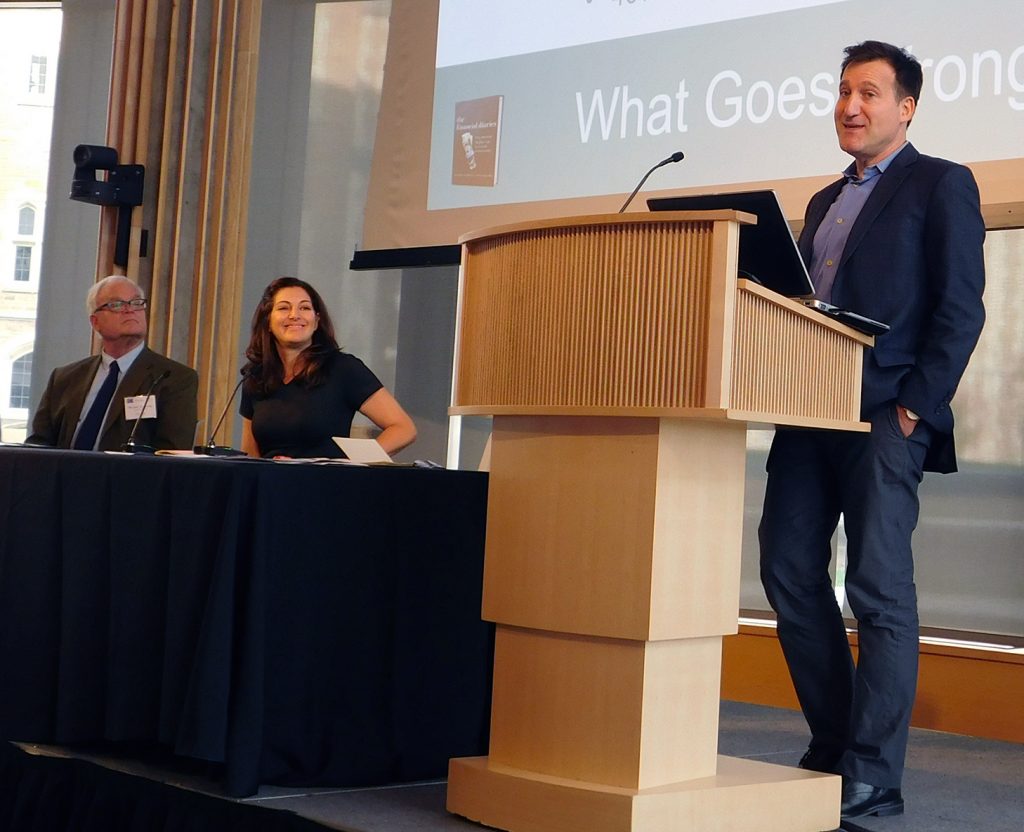In a joint appearance, the authors of “The Financial Diaries: How American Families Cope in a World of Uncertainty” headlined an October 24 event co-sponsored by the Center for Social Development (CSD) and the Federal Reserve Bank of St. Louis.
Jonathan Morduch and Rachel Schneider described topsy-turvy lives affected by unexpected dips in wages. One-third of the 235 families they followed were threatened with eviction or the disconnection of their utilities during the research project.
Traditional measures of poverty in the U.S. look at a family’s annual income. Morduch and Schneider focused on cash flow.
“Because we were able to track money over time through a household, we really had this new set of information,” Schneider told the audience in the Clark-Fox Forum at the George Warren Brown School of Social Work. “And it really led us, of course, to think that there is a new version of inequality.”
In their new book, Morduch and Schneider illustrate how this new definition of inequality plays out in the lives of the people they followed. Among them is a mechanic who works on 18-wheel trucks. He leaves one job for a lower paying job farther from home because the new position offers him steady income. His old job was based on commission and paid him better when there were plenty of trucks to work on. But when work slowed, his pay plummeted.
“When a longer commute for less pay for the same work is a step up, it’s time to fundamentally rethink our understanding of the challenges facing working Americans,” the authors write.
CSD Director Michael Sherraden said “The Financial Diaries” has the potential to reach a wide audience beyond academia. Ray Boshara, director of the St. Louis Fed’s Center for Household Financial Stability, also offered praise. “Every now and then a book comes along that fundamentally changes how we think about an issue,” he said.
In addition to the authors’ keynote addresses, the event featured panels on issues around saving and liquidity, employment, and poverty and inequality.
Panelists included Emily Gallagher, a postdoctoral scholar at CSD, Jaison McCall, assistant director of education and financial capability at Prosperity Connection, Charles Gascon, a regional economist and the senior coordinator of the research division at the St. Louis Fed, and Genevieve Friedmann, a program manager at YWCA Metro St. Louis, Mark Rank, professor of social welfare at the Brown School, and Kyra Bland, homeownership advisor and financial educator at Beyond Housing.
